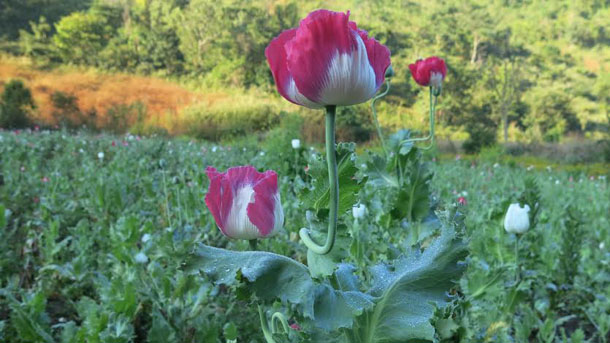RANGOON — A Home Affairs minister has told Parliament that despite a 15-year nationwide drug eradication project opium production in Burma has continued to rise, adding that there will be a five-year project extension in order to eradicate the crop.
Brig-Gen. Kyaw Kyaw Tun, deputy minister of Home Affairs, said during a Lower House meeting on Monday that after the initial success of the government project, which began in 1999, the opium crop bounced back and expanded.
“Since the onset of the 15-year project in 1999, we saw a drop in the growth until 2006, but it has increased since 2007,” he said in a response to a question raised by Win Myint, a lawmaker from Pathein, state-owned newspaper The Mirror reported.
The remarks of the deputy minister are in line with the findings of the annual reports by the UN Office on Drugs and Crime (UNODC), which have warned that the area under opium in Burma has been on the rise for six consecutive years.
Kyaw Kyaw Tun said the government has collaborated with the UNODC since 2002 to monitor opium growing inside the country, adding that last year an estimated 57,800 hectare was under poppy cultivation. In 2012 and 2011, more than 51,000 hectare and more than 43,600 hectare, were used for opium cultivation, respectively, he told the Lower House.
Kyaw Kyaw Tun said the government’s 15-year drug elimination project, which set a goal of eradicating all opium by 2014, finished in March this year. The government has now extended the project with another five years and will focus on eradicating poppy in 51 townships in major opium growing areas in Shan, Kachin, Kayah and Chin States.

















